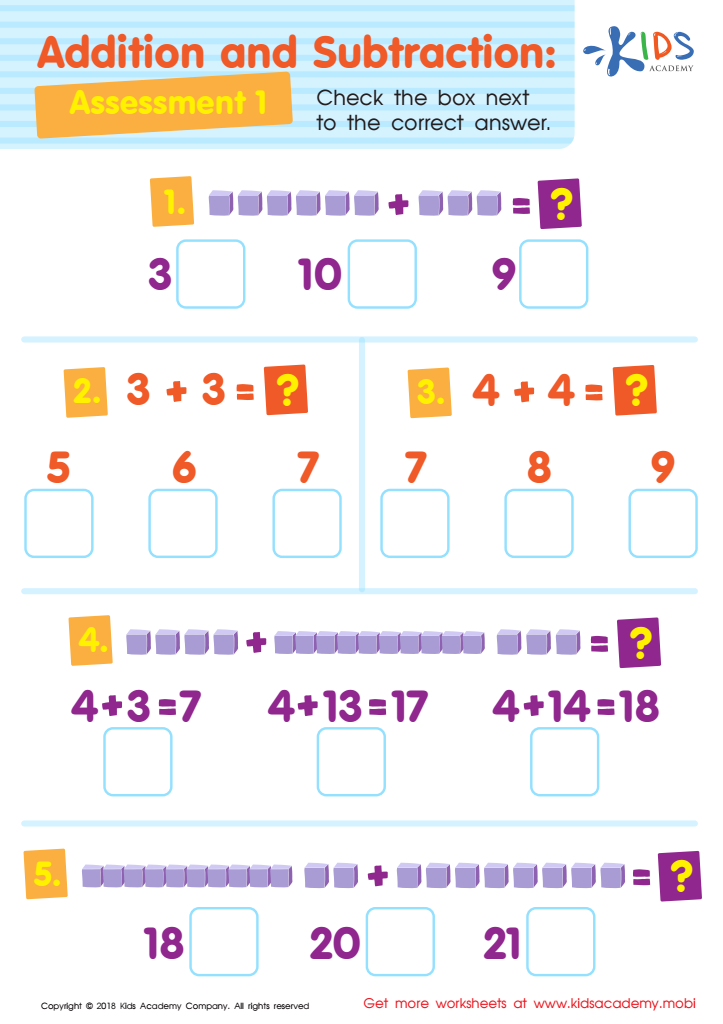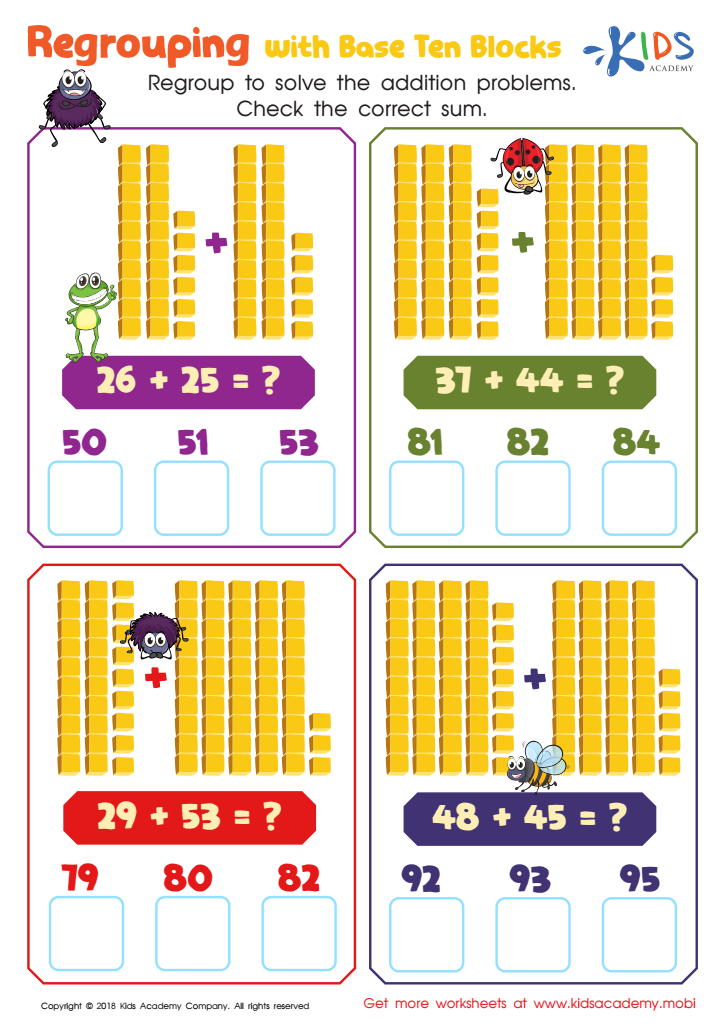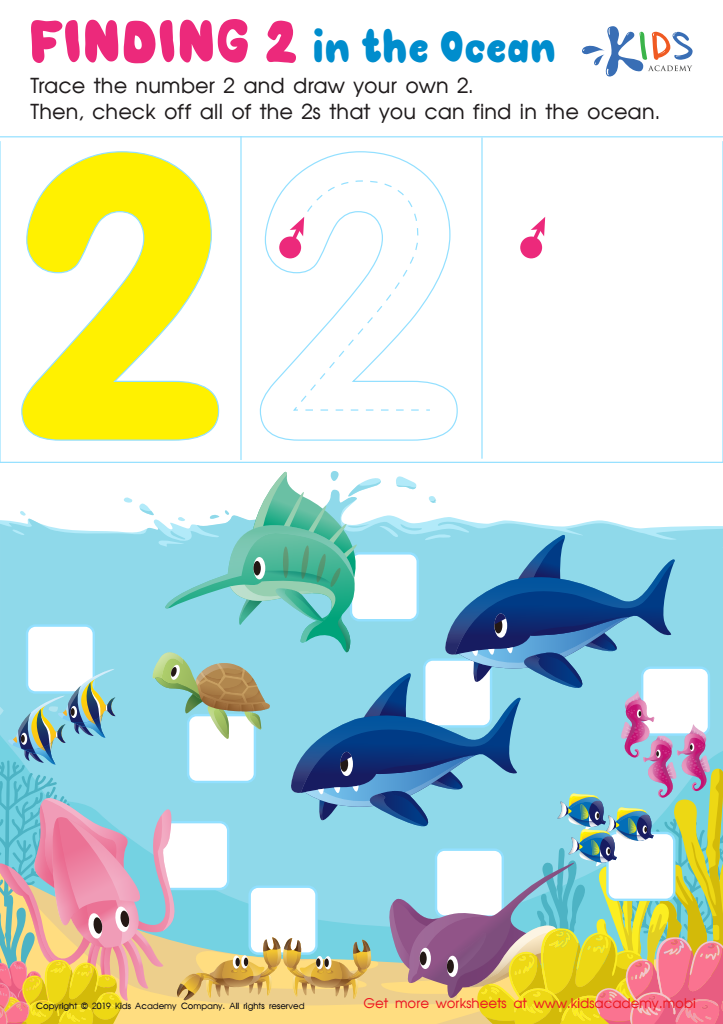Develop problem-solving abilities Numbers Worksheets for Ages 3-9
3 filtered results
-
From - To
Discover engaging "Develop Problem-Solving Abilities Numbers Worksheets for Ages 3-9" designed to enhance your child’s mathematical skills. Our worksheets inspire young learners to explore numbers through fun, interactive activities that build strong problem-solving capabilities. Tailored for ages 3-9, these printable exercises cover counting, basic operations, and logical thinking, fostering an early love for math. Each carefully crafted worksheet bridges learning with play, ensuring your child remains motivated and confident in their abilities. Perfect for parents and educators aiming to support foundational math skills, our vibrant, easy-to-follow worksheets make mastering numbers enjoyable and rewarding.


Addition and Subtraction Assessment 1 Worksheet


Regrouping With Base Ten Blocks Worksheet


Finding 2: In the Ocean Worksheet
Developing problem-solving abilities related to numbers for children ages 3-9 is crucial for several reasons. At these formative stages, children are establishing foundational skills that shape their cognitive, social, and emotional development. Encouraging problem-solving with numbers enhances their logical thinking and analytical abilities, which are critical for academic success.
Numbers and math-related problem-solving tasks help kids understand the concepts of quantity, patterns, and relationships. These skills are not confined to mathematics alone but extend to everyday decision-making and critical thinking scenarios. By engaging in numerical problem-solving, children learn perseverance and develop the capability to approach challenges systematically, which builds confidence and resilience.
In addition to building cognitive skills, working with numbers can improve fine motor skills and hand-eye coordination through activities like counting objects, drawing shapes, or arranging items in sequence. These interactions also often include collaborative tasks that help improve social skills as children communicate and work together to find solutions.
Parents and teachers fostering a positive and engaging numerical problem-solving environment can uncover and nurture talents, turning learning into a fun and rewarding experience. This nurturing can inspire a lifelong appreciation for mathematics and problem-solving, opening pathways to diverse career opportunities and a fulfilling personal and academic life.
 Assign to My Students
Assign to My Students




















